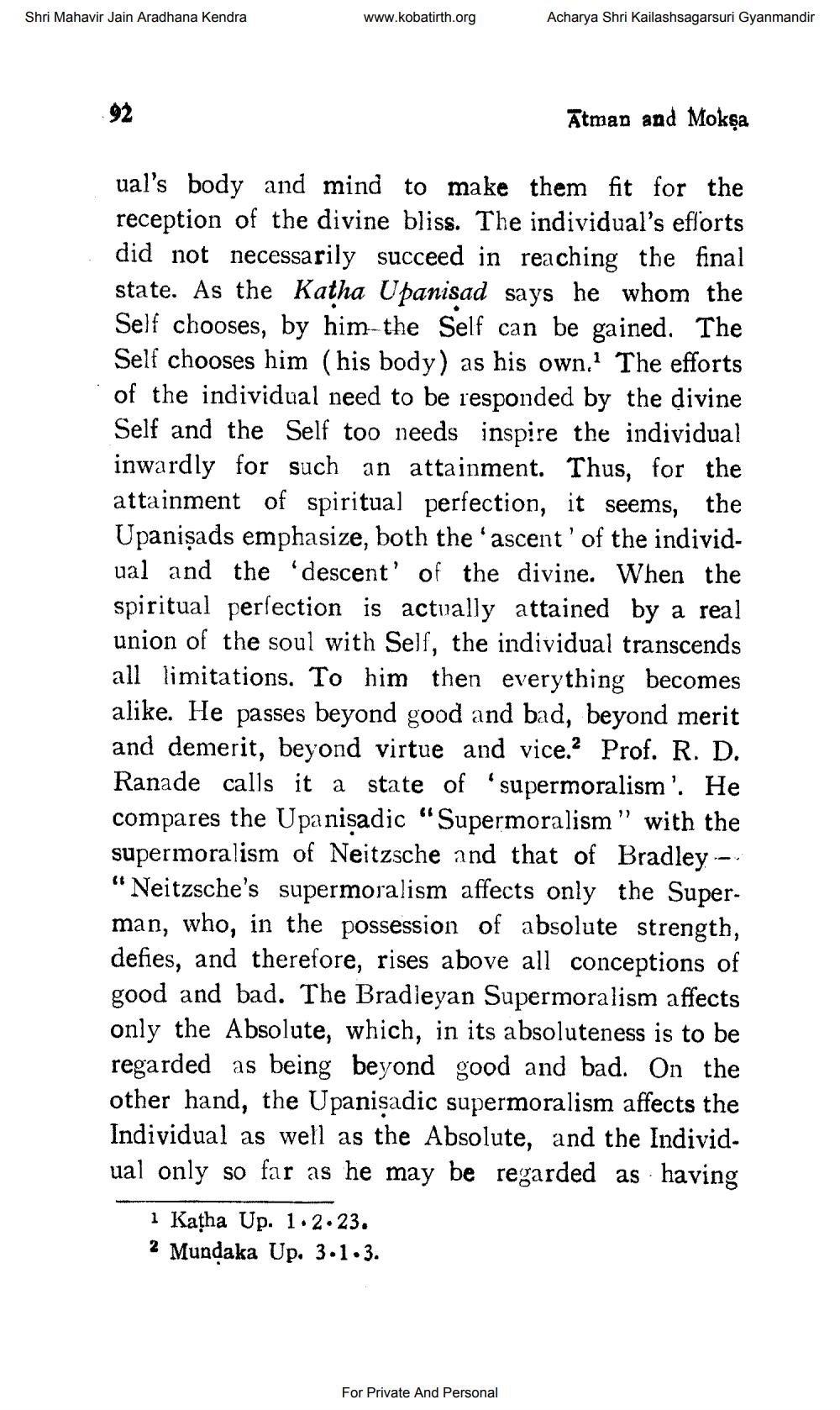________________
Shri Mahavir Jain Aradhana Kendra
www.kobatirth.org
Acharya Shri Kailashsagarsuri Gyanmandir
Atman and Mokşa
ual's body and mind to make them fit for the reception of the divine bliss. The individual's efforts did not necessarily succeed in reaching the final state. As the Katha Upanisad says he whom the Self chooses, by him-the Self can be gained. The Self chooses him (his body) as his own. The efforts of the individual need to be responded by the divine Self and the Self too needs inspire the individual inwardly for such an attainment. Thus, for the attainment of spiritual perfection, it seems, the Upanişads emphasize, both the 'ascent' of the individual and the 'descent of the divine. When the spiritual perfection is actually attained by a real union of the soul with Self, the individual transcends all limitations. To him then everything becomes alike. He passes beyond good and bad, beyond merit and demerit, beyond virtue and vice.? Prof. R. D. Ranade calls it a state of 'supermoralism'. He compares the Upa nisadic "Supermoralism" with the supermoralism of Neitzsche and that of Bradley - "Neitzsche's supermoralism affects only the Superman, who, in the possession of absolute strength, defies, and therefore, rises above all conceptions of good and bad. The Bradleyan Supermoralism affects only the Absolute, which, in its absoluteness is to be regarded as being beyond good and bad. On the other hand, the Upanişadic supermoralism affects the Individual as well as the Absolute, and the Individ. ual only so far as he may be regarded as having
i Katha Up. 1.2.23. 2 Mundaka Up. 3•1•3.
For Private And Personal




